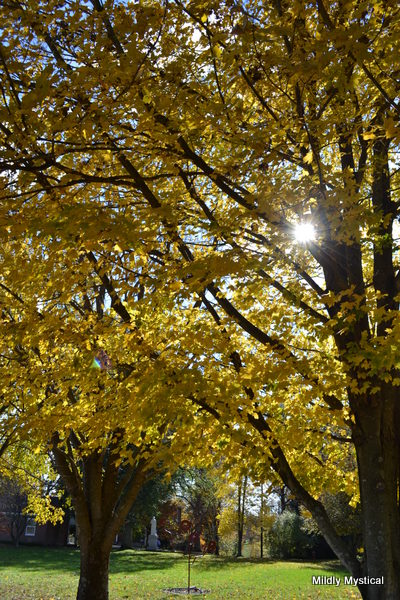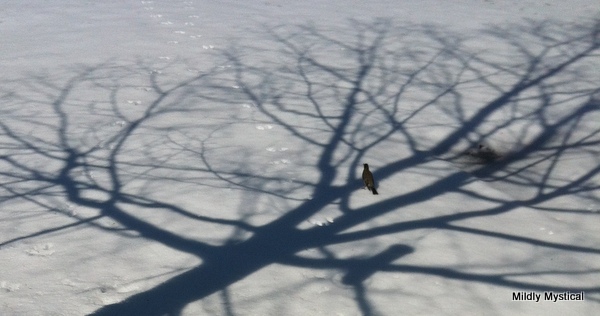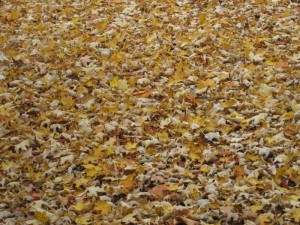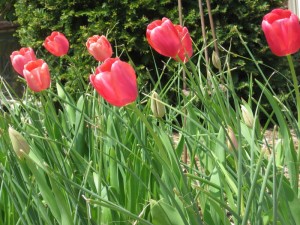I had a dream recently in which I was making a sign that simply read “Merci” in red letters on a white background. I was on a front porch, nailing the sign to a square pillar coated with old and crackling white paint. It was important for the drivers going by on the road in front of the house to be able to read the sign if they looked to their left.
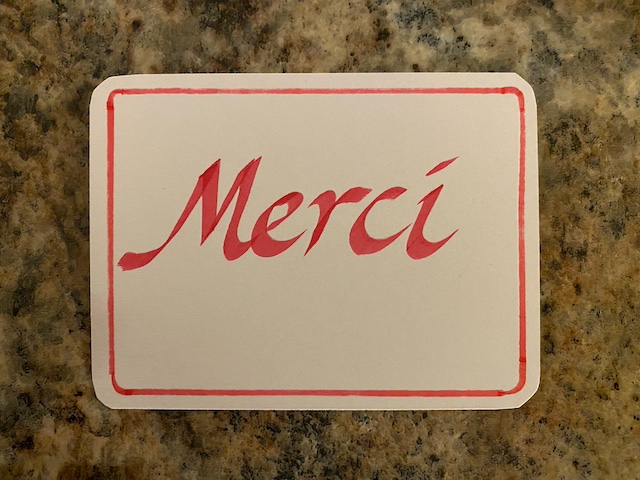
Merci—the French word for “thank you.” As I began to wake, holding onto the dream, I saw the word on the sign as reading “Mercy.” It turns out that the word mercy does come from the old usage of the French merci. The dreaming mind made connections I hadn’t thought about.
Mercy is the bestowing of a kindness that we have no claim to, that we are in no position to repay. Compassionate treatment when the ordinary terms of justice would allow retribution more harsh—this is mercy. Mercy also names the spiritual reward for bestowing this kind of benevolence on others.
So in the modern-day French acknowledgment of a kindness, “thank you” bears traces of humility. It names gratitude not just for the favor, but for the benevolence of a person who has willingly and generously chosen to bestow unearned kindness in their treatment of us. For their mercy upon us.
I didn’t give much thought to the concept of mercy in my younger years. I didn’t consider myself powerful; I wasn’t in a position to bestow mercy. Kindness, yes. Always. But mercy has a different flavor. And I felt, without ever articulating it, that mercy was needed by those who had done something criminal and were in fear of judgment—a dramatic circumstance that seemed far from my ordinary life.
But life brings wrenching changes that we are powerless to avoid, no matter how fervently we employ our favorite tactics to keep ourselves safe. While we make plans and devote ourselves to the things we think we want, loss makes its way to our door. Its power is beyond our control. We need help getting through the hardest things. “Mercy” is the deeply human cry when life blows open our door.
I recall the voices of my elders as they would respond to shocking news. “Lord have mercy,” they would say. Or in the way of my mother, who utters simply and emphatically, “Mercy!”
Life teaches us the humility and wisdom of asking for mercy. We have immense agency in our lives, but we do not have the power or control we want to believe we have.
Yet the other part of what life teaches us is named in mercy’s alter-ego: merci—thank you. Life has a benevolence that sustains us in every moment. We are carried in ways we forget to notice. Our very breath happens when we are paying attention to other things.
There are many ways to name the life-giving force that sustains all of creation—Love, Spirit, Source, God. May we all remember our connection to this Life Force and to one another, as part of the flow of love and mercy and thanks.
Susan Christerson Brown

